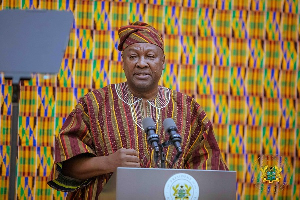“It is important we adopt the right phrases for concepts so as not to promote individualism at a time when collectivism is our best bet to winning the fight.”
When disease ravages and grows exponentially amongst the populace, it is first categorized an epidemic and when the numbers have grown significantly and affects the world it’s called a pandemic.
At this moment strategies that are drawn include identification, prevention, and treatment and recovery steps.
For Covid-19, research from the World Health Organization joint mission team that visited Wuhan in China indicated:
“COVID-19 is transmitted via droplets and fomites during close unprotected contact between an infector and infected (human to human). Airborne spread has not been reported for COVID-19 and it is not believed to be a major driver of transmission based on available evidence; however, it can be envisaged if certain aerosol-generating procedures are conducted in health care facilities. Fecal shedding has been demonstrated from some patients, and viable virus has been identified in a limited number of case reports. However, the fecal-oral route does not appear to be a driver of COVID-19 transmission; its role and significance for COVID-19 remains to be determined” (Report of the WHO-China Joint Mission on Coronavirus Disease 2019 (COVID-19), pg 8)
This simply meant that, limiting human to human contact will slow down the rate of transmission and help manage the identified cases. It was termed “social distancing” with the intention to educate people on avoiding social gatherings or contact.
However the term “social” goes beyond physical human presence. Social pertains to the actual, imagined or implied presence of others and the concept behind social psychology. This is also the theory behind social media, social support etc.
One of the important psychological interventions during a traumatic experience is the actual or imagined social support a person feels. This allows them to build on their strengths and look up to others for support in areas they might be vulnerable.
At a time when the world needs everyone to be onboard to fight Coronavirus, what we require is “social support” and not “social distancing”.
Pick up the phone and share a kind word with family and friends who might be in quarantine due to a positive test for COVID-19 or in Isolation due to a Lockdown of a city (Emotional Social Support).
The society needs to support the vulnerable who cannot acquire basic needs such as food, shelter and security (Tangible or financial social support).
The front line health workers need to wear their Personal Protective Equipments (PPE’s) and provide treatment for patients with symptoms (Physical Social Support). Also, the media needs to use their platforms to educate and provide updates on Covid-19 (Informational social support).
It is therefore important we adopt the right phrases for concepts so as not to promote individualism at a time when collectivism is our best bet to winning the fight.
“Keep the Physical Distance”
“Provide Social Support”
We can win the fight against Covid-19 together
Opinions of Saturday, 11 April 2020
Columnist: Salim Sulley Wangabi















